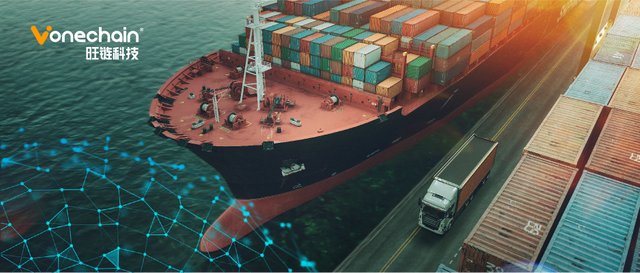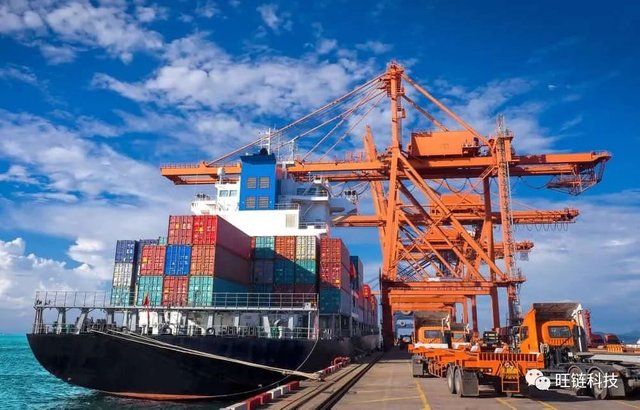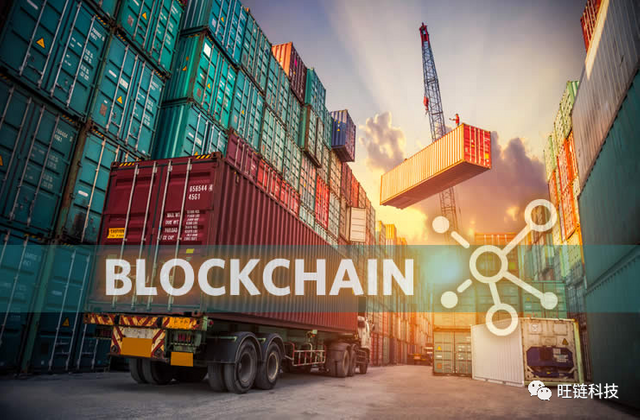How to Solve Port “Congestion”? Test this “Sea Token”

Since COVID-19 pandemic spreads globally, subject to capacity limit, Baltic’s sea freight index is running in high price. Meanwhile, throughput of shipping port in our country also continuously hits record high within a year, hence this shows a strong trend of recovery in shipping industry.
Under the severe global macro economy situation, despite that the construction of smart port has been listed in national smart shipping development plan, port industry still faces massive logistics information such as production berth, large scale equipment, rail arrivals and cargo shipment that needs to be handled daily, thus dependence of information system in port operation grows stronger. Consequently, how to response to supply and demand relationships effectively under extreme market situation via technical empowerment in order to maintain long-term stable industrial development momentum has become the key factor of smart port construction.

Image source: Google
Being a disruptive and new trust mechanism, application of blockchain technology in port shipping industry has become a new possibility. As we know, foreign countries such as Netherlands, New Zealand, India, Ukraine and so on had applied blockchain technology on port construction. Currently, several ports in our country which already deployed actively in empowerment of blockchain on port had obtained good economic benefits.
Traditional Port Market Faces Difficulties in Transformation
Under the big background of industrial digitization development, port industry needs to continuously improve intelligence level so that industry can seize the best opportunity to make a difference during industrial transformation process. However, currently our country is facing difficulties in port industrial transformation, so gap still exists in terms of practical requirement.

Image source: Google
First is lack in information traceability. Port bears the responsibility of communicating internal and external cargo, thus traceability management is very important. However, due to traditional technology dilemma, port which is still unable to satisfy the current demand in cargo information traceability has laid up trouble for incidents that may occur.
Second is unshared, asymmetrical information and severe trust problem. Port industry involves long process of cross-border trading, industrial chain and supply chain, hence this has easily caused increase in credit absence and risk, while frequently leading to higher mutual trust cost of node and multi-party collaboration difficulty under current unshared and asymmetrical information situation. Furthermore, another common difficulty is asynchronous paper documents and port cargo which results in awkward situation, that is cargo setting aside at the port and unable to proceed to the next transportation stage. Especially due to pandemic disturbance, port congestion issue has become serious and led to increase in trust cost.
Third is low efficiency and tedious business process. As port industry involves many aspects and needs to contact frequently with bank, tax, insurance and custom departments, establishment of agencies has caused low work efficiency and affected enterprises’ profits. According to the calculation from related organization, if all documentation works related to trading in Asia-Pacific region are digitized, approximately 44% of time and 31% of cost can be saved, thus we can see how huge is the operating space of handling port business process digitization.
Blockchain Empowers Smart Port Construction
Mainstream opinion thinks that smart port is a port with cyber-physical systems as structure framework that makes both supply and demand logistics parties to involve in transport integration system through creative application of new technology. Smart port can highly improve comprehensive processing of port information and optimize configuration ability in order to achieve automatic and smart port operation under the lead of informatization, networking, paperless and intelligence.
Firstly, as a distributed database, blockchain’s tamper proof, anonymity, traceability and decentralized characteristics can strengthen data trust between port import and export participants, increase working efficiency and safety factor of port effectively and achieve cargo tracking and traceability in order to facilitate smart development of port.
Secondly, blockchain technology helps in enhancing supply chain network visibility. In global trade, 80% of commodity is completed through port shipping method. As overall industrial chain and supply chain in trading are longer and logistics network is complicated, most traders hope to check their cargo shipping condition at all times in order to ensure safety of their properties in time. Blockchain’s tamper-proof and distributed storage technology can help to establish high level of safety and transparent industrial supply chain sharing network and provide end-to-end visibility based on every participant’s authority, so that location progress of cargo in supply chain can be easily checked, all participants of supply chain management can exchange transport information in real-time, and at the same time cargo transportation route can be optimized according to data to ensure best optimized logistics route and increase transportation efficiency.
For instance, blockchain timber business service platform established at Shandong Port enables downstream purchaser to obtain related information from the platform immediately after upstream timber carrier arrives at the port. This breaks the barrier of cargo information and constructs new business type in port services.
Moreover, blockchain contributes in building strong cornerstone of industrial credit. As a type of credit construction technology, blockchain ensures information on chain is kept in secret, accurate, traceable, and at the same time assuring completeness and uniqueness of information via standardized encrypted data. This is to achieve all-chain development tracking of cargo, ensure full collaboration and trust between trading parties, reshape industrial production relationship and accomplish transformation from “information Internet” to “value Internet” so that shortcomings that cause incomplete, not-in-time and low credibility in terms of industrial information exchange can be improved effectively.
Besides that, blockchain can increase operational efficiency of industry effectively. In current society, centralized organization can be seen in everywhere, including port shipping industry. The existence of certain centralized organizations which are similar to agencies increase rent-seeking space of industrial information monopolist and reduce industrial efficiency. Hence, by applying key characteristic of blockchain which is decentralization and combining blockchain’s unique digital encryption technology, disintermediation in industry can be gradually achieved. Furthermore, addition of blockchain smart environment operation and process reconstruction also establish all-chain node collaboration and lead to effective cooperation of all nodes.
For example, apply blockchain project in traditional port management can improve current port logistics situation significantly via data sharing, thus some container business needs not to release only after waiting for successful payment and payment confirmation sent. As each party can immediately carry out payment, confirm and release operation on their own through real-time data sharing, this has greatly increased operational efficiency and ease the port congestion problem in certain extent.

Image source: Google
Embrace Blockchain, New Momentum of Smart Port Construction
While Political Bureau of the Central Committee of the Party carried out group study regarding blockchain technology development state and trend, President Xi, the General Secretary pointed out that:
“Grab the opportunity of blockchain technology integration, function expansion and industrial segmentation, utilize blockchain’s advantage in facilitating data sharing, optimizing business process, reducing operational cost, increasing collaborative efficiency, establishing trusted system and etc.”
Currently, blockchain technology has accomplished many successful cases in terms of smart port empowerment and effectively facilitated digital transformation of port shipping industry. For example, in the end of July 2021, Guangzhou Port Company Limited achieved cooperation with the first shipping blockchain alliance (GSBN) in the witness of both China Waterborne Transport Bureau and China Ports and Harbours Association.
Innovation triggers development. As the result of the 4th Industrial Revolution, blockchain technology’s distributed, open and transparent, safe and stable characteristics bring wide application prospect in port sector.
As a blockchain-based autonomous organizational platform which self-researched and developed by Vonechain Technology, VoneDAO establishes a decentralized, free collaborative and self-managed new production relationship by relying on technologies such as network, algorithm, blockchain, consensus mechanism, smart contract and based on trust. This platform can help port shipping enterprise to improve internal management system, reduce operational cost and increase operational efficiency.
Smart port construction is an important service infrastructure of national economic development, and embracing blockchain will bring new momentum to smart port construction. As a pioneer company of blockchain technology deployment, Vonechain Technology will put efforts in facilitating digital transformation of port and constructing smart port.